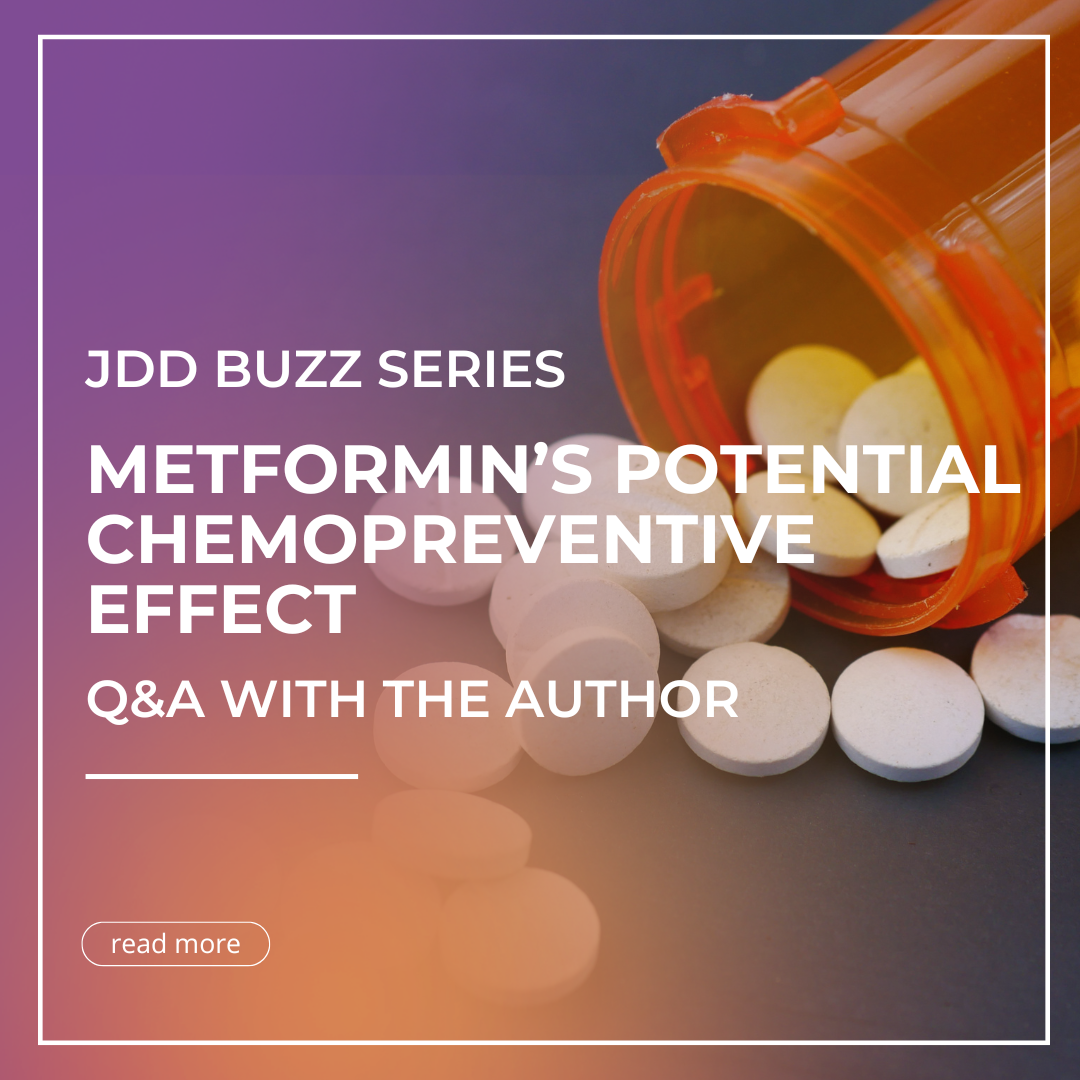A commonly used diabetes medication may help prevent non-melanoma skin cancer. A study in the December Journal of Drugs in Dermatology analyzed whether metformin exposure is associated with a reduced risk of non-melanoma skin cancer. The study also stratified findings by race/ethnicity, which makes it unique among similar research studies.
I interviewed author Tiffany Jow Libby, MD, FAAD, FACMS. Dr. Libby is director of Mohs micrographic and dermatologic surgery at Brown University Warren Alpert Medical School.
What motivated you to look into an association between metformin use and risk of non-melanoma skin cancer?
Metformin, primarily known for its use as a frontline treatment for type 2 diabetes, has expanded into various other medical fields and may offer promising avenues as a preventative medication beyond its traditional scope. Non-melanoma skin cancers (NMSC), including basal and squamous cell carcinomas, present a significantly higher morbidity and mortality risk in patients with skin of color compared to patients with lighter skin tones. This disparity is further exacerbated by later-stage diagnoses and cultural misconceptions about skin cancer risk in these populations. Given these noticeable gaps, we saw this as an intriguing opportunity to investigate the potential preventative role of metformin as a means to help address this important gap in skin cancer prevention. Previous studies conducted in Iceland and Taiwan have suggested a protective role of metformin against NMSC; however, it was important to investigate if similar findings would hold true in a more diverse U.S. population.
Why is it important to consider protective agents in preventing non-melanoma skin cancer?
Non-melanoma skin cancers, such as basal cell carcinoma and squamous cell carcinoma, are among the most common types of cancer globally. Utilizing protective agents can significantly reduce the incidence rates, and effective chemopreventive strategies could help bridge this health equity gap and improve outcomes.
You conducted a retrospective case-control analysis. What did it reveal? What was surprising about your results?
Our retrospective case-control analysis, utilizing propensity score matching, revealed a significant association between metformin use and a reduced risk of both basal cell carcinoma (BCC) and squamous cell carcinoma (SCC). Notably, metformin use was associated with decreased risk across sex and ethnicity groups for BCC as well as for SCC in most populations. However, a surprising finding was that metformin exposure in African American patients was not associated with a significantly decreased risk of SCC; this may potentially be due to disease-specific factors, such as the association of SCC with chronic scarring and inflammation in these patients.
Your data came from the All of Us database. How did you go about choosing that database and why?
The All of Us database was chosen due to its emphasis on capturing data from populations traditionally underrepresented in biomedical research, including racial and ethnic minorities. Additionally, this database offers detailed electronic health record data, making it easier to analyze information consistently across different healthcare settings.
What are the mechanisms of metformin that may play a role in cancer prevention?
Metformin’s potential anticancer mechanisms are considered multifactorial, such as activating AMP-activated protein kinase (AMPK), inhibiting the mTOR pathway, promoting cell cycle arrest and apoptosis, and reducing chronic inflammation. Additionally, metformin decreases insulin and insulin-like growth factor levels, both of which are drivers of cancer cell growth. These mechanisms collectively contribute to metformin’s ability to inhibit tumor growth, angiogenesis, and metastasis, as evidenced by preclinical studies.
What else should dermatology clinicians know about metformin use and the risk of non-melanoma skin cancer? Should the study results impact clinical practice?
Our findings highlight the potential of metformin as a protective agent against non-melanoma skin cancers, particularly BCC. This adds to growing evidence supporting metformin’s role in cancer prevention. While our study relied on retrospective data, it provides a strong foundation for further research. We believe that future prospective studies are needed to validate these results, especially in diverse populations. Should further studies validate it, metformin might potentially offer a beneficial chemopreventive approach for patients at risk of NMSC, potentially enhancing current treatment options.
Did you enjoy this JDD Buzz article? You can find more here.

